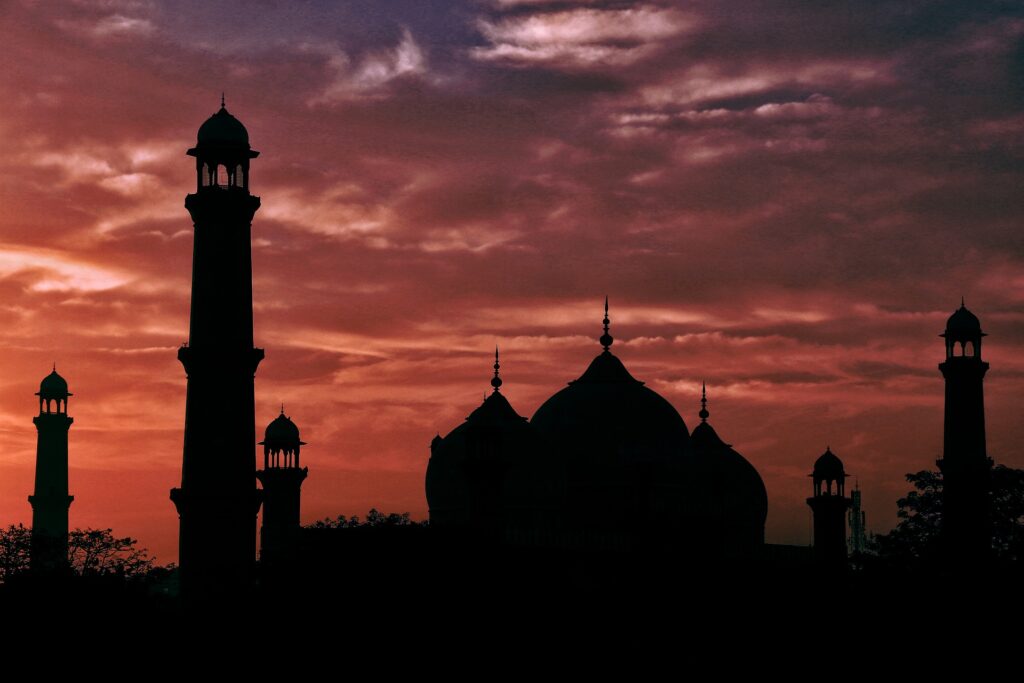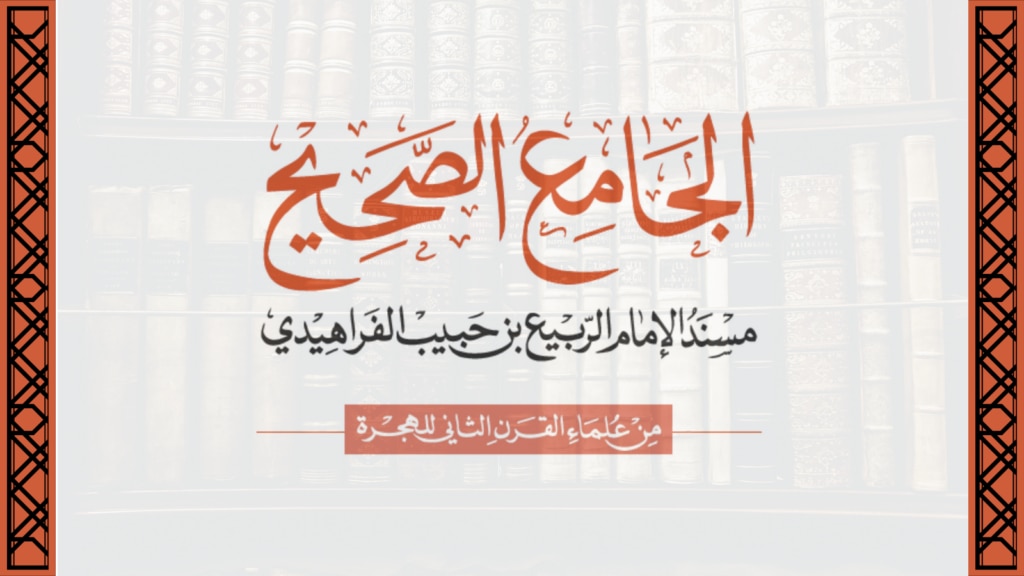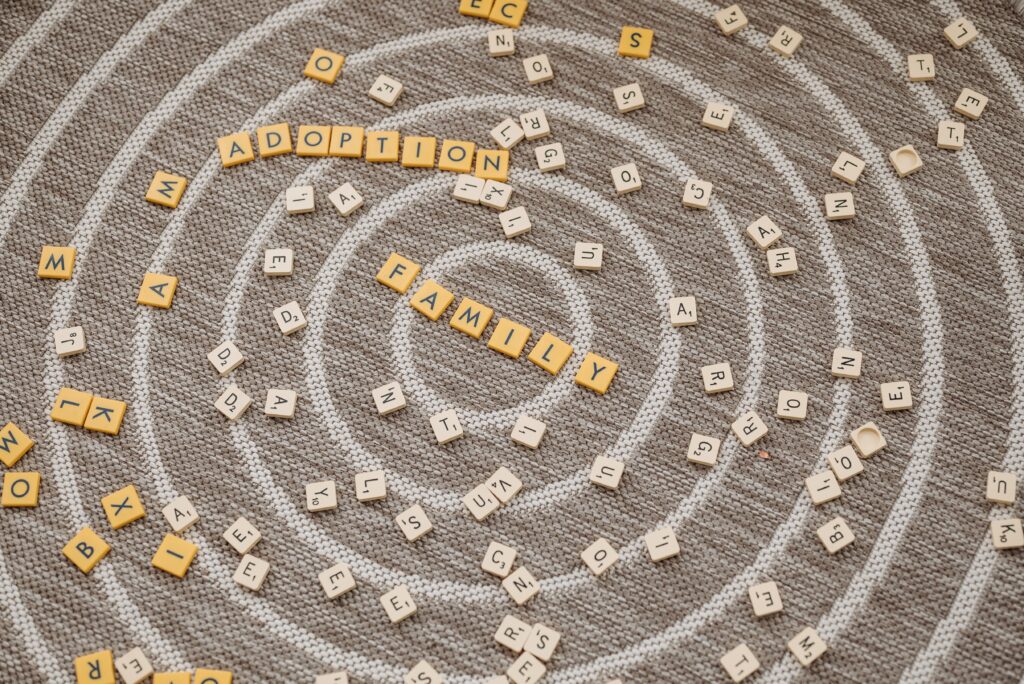Guidance regarding basic Islamic issues – which Hazrat Amirul Momineen, Khalifatul Masih Vaa has given on various occasions in his written correspondence and during MTA programmes – is being officially published below for everyone’s benefit
Zaheer Ahmad Khan, Head of Records Department, Private Secretariat, London

Fasting and menstruation
Hazrat Amirul Momineen, Khalifatul Masih Vaa was asked whether a woman should break or complete her fast if her menstrual period started while the fasting. Moreover, once that period is over, could she clean herself [by performing ghusl] after suhoor or must she do so before it?
Hazrat Amirul Momineenaa, in a letter dated 30 April 2020, gave the following reply to this question:
“This natural condition of women is described by the Holy Quran as a state of ‘أَذًى [azaa]’ i.e. pain. Islam has exempted women from performing all kinds of acts of worship during this state. Therefore, the fast ends as soon as the menstrual period begins. Fasting can only be resumed once this period is completely over and one has completely washed and purified oneself. Moreover, the fasts that are missed during these days (including the two days of the onset and the end) can be completed at any time after Ramadan.”
Three men shall fight for a treasure: meaning of a hadith
Someone wrote a letter to Hazrat Amirul Momineen, Khalifatul Masih Vaa and quoted the following hadith in it, as narrated by Hazrat Thaubanra:
“Allah’s Messengersa said, ‘Three individuals shall fight one another for one of your treasures (and shall be killed), each one of them the son of a caliph (ruler), but none of them shall gain that treasure. Then, black flags shall appear from the east. They shall kill you in an unprecedented manner.’ Then, he mentioned something that I do not remember, and then he said, ‘When you see him (the Mahdi), pledge your allegiance to him even if you have to crawl over snow, for he is al-Mahdi, the Caliph of Allah [Khalifatullah Al-Mahdi].”

The person then interpreted a part of the hadith and asked Huzooraa for his opinion of it. Moreover, he requested further explanation of another part of the hadith.
In a letter dated 30 May 2020, Huzooraa gave the following reply to this question:
“You have quoted this hadith from Al-Bahr Al-Zakhkhar, whereas it has also been recorded in Kitab al-Fitan, Bab Khurooj Al-Mahdi of Sunan Ibn Majah which is one of the Authentic Six [al-Sahih al-Sittah]. The interpretation you have done of the treasure [kanz] and the sons of the caliphs, mentioned in the hadith, is merely your personal point of view.
“In my view, in this hadith, the Holy Prophetsa is informing of various events that were to occur in the Muslim ummah in the future, some of which relate to worldly and others to spiritual matters. Although many scholars have applied the word kanz to the treasure of the Ka‘bah, that treasure has fallen into the hands of many rulers. Therefore, the treasure mentioned in the hadith cannot mean the treasure of the Ka‘bah because the Holy Prophetsa is saying in the hadith that none of them shall get that treasure.
“Therefore, it refers to the spiritual treasure, of which the Holy Prophetsa had given the glad tidings in the form of the establishment of Khilafat ala Minhaj al-Nubuwwah, the Khilafat on the precepts of Prophethood after him. Since the foremost condition for obtaining this treasure, according to the Holy Quran, is faith and righteous deeds, which had ceased to exist among those worldly rulers, they fought numerous wars to obtain it, but that spiritual treasure did not get into anyone’s hands.
“That is why in this hadith, the Holy Prophetsa has merely used the words ‘Ibnu khalifa’ for those who fought for a [physical] treasure. That is, they will be caliphs in the sense of heirs, but they will not be caliphs established by Allah the Exalted or subject to the caliphate based on prophethood. However, in the same hadith, the Holy Prophetsa has used the words ‘Khalifatullah al-Mahdi’ for the person who was to receive the spiritual treasure of Khilafat ala Minhaj al-Nubuwwah – the Khilafat on the precepts of Prophethood.
“You have expressed your opinion regarding the mention of the killing of Muslims in this hadith, that it would take place through the Mahdi, which is not correct in my view.
“If it is interpreted to mean physical killing and bloodshed, then that could not be carried out by the Mahdi at all; rather, it would refer to the bloodshed in the wars fought among Muslims during the two periods mentioned in the prophetic statement in another hadith of the Holy Prophetsa (recorded in Mishkat al-Masabih) in the words: ‘مُلْكًا عَاضًّا [tyrannical monarchy]’ and ‘مُلْكًا جَبْرِيَّةً [monarchical despotism]’. Moreover, it would also refer to the massacre of Muslims by the Mongols in the thirteenth century.
“One of the proofs as to why this massacre was not to be carried out by the Khalifatullah al-Mahdi is that the Holy Prophetsa has mentioned ‘يَضَعُ الْحَرْب’ i.e. ‘He will put an end to wars and bloodshed’ (Sahih al-Bukhari, Kitabul Anbiaa, Bab Nuzooli ’Isa) as a hallmark of the coming Mahdi. Thus, how can it be that on the one hand the Holy Prophetsa is declaring the coming Mahdi as a standard-bearer of peace and reconciliation, and on the other hand, he is informing of such bloodshed of the people of the ummah of Muhammadsa as never carried out by anyone in the past?
“Then, the narrator’s statement in this hadith that ‘After that, the Holy Prophetsa said some other things which I do not remember’ deserves special attention and it is quite possible that those matters were related to the appearance of the Dajjal, the Antichrist, because there are numerous traditions in the books of hadith in which the Holy Prophetsa described the trial of Dajjal as the greatest trial and gave the glad tiding to his ummah of the coming of the Promised Messiah to counter that [trial]. According to the narrator, after these words, the Holy Prophetsa mentioned the arrival of Hazrat Imam Mahdias and, while making it obligatory to pledge allegiance to him, he stressed that even if one had to crawl over glaciers on one’s knees, one ought to swear allegiance to him, because he is the Khalifatullah al-Mahdi.
“Therefore, the Holy Prophetsa has mentioned three distinct periods of time in this hadith:
1. The period of time when the blessed era of the Holy Prophetsa and the Rightly-Guided Khilafat was to come to an end according to God’s will and after that, the Muslims were to fight among themselves and were to shed blood of their own people after having subjugated them. At that time, they were to lose their spiritual treasure.
2. The second is the period of time when Muslims were to be subjected to bloodshed by their non-Muslim opponents due to their material weakness too.
3. Then there is the third time when, according to the prophecies of the Holy Prophetsa, the Imam Mahdi, the Muhammadan Messiah was to appear and the part of the Muhammadan ummah which was to embrace this ardent devotee and spiritual son of the Holy Prophetsa by pledging their allegiance to him, was to experience, once again, a time of prosperity which was once witnessed by the Muhammadan ummah during the blessed era of its Master and Guide, the Holy Prophet Muhammadsa, the Chosen One. The glad tiding of ‘صحابهؓ سے ملا جب مجھ كو پايا’ [He meets the Companionsra when he finds me] was to be fulfilled for fortunate souls at that time.
“If the murder and destruction mentioned in the hadith is taken metaphorically, then its meaning will be as follows: Just as the true meaning of the phrase ‘فَيَكْسِرَ الصَّلِيبَ وَيَقْتُلَ الْخِنْزِيرَ’ [He shall break the cross and kill the swine], as mentioned in the hadith about postponing warfare [يَضَع الْحَرْب] in Sahih al-Bukhari is not the [physical] breaking of crosses and killing of swine; rather, it is the counterblast to the objections raised against Islam by Christianity, likewise, the killing of Muslims by the Imam Mahdi refers to the eradication of false beliefs that have found their way into Muslims, and it refers to establishing the faith across the world in accordance with the teachings of the Holy Prophetsa, after having revived the faith.
“So, in my view, if this hadith is taken in this way, it becomes a more befitting interpretation and the qitaal [killing] can also be explained in this way.”
Musnad al-Rabee‘ ibn Habeeb
An Arab friend wrote to Hazrat Amirul Momineen, Khalifatul Masih Vaa and asked whether Musnad al-Rabee‘ ibn Habeeb, the hadith book of the Ibadiyya sect, was considered authentic and followed by the Ahmadiyya Muslim Jamaat.
In a letter dated 30 May 2020, Huzooraa gave the following reply to this question:
“The belief of the Ahmadiyya Jamaat regarding the ahadith of the Holy Prophetsa, in light of the teachings of the Promised Messiahsa, is that the third source of guidance after the Holy Quran and the sunnah is hadith, which is a servant of the Quran and the sunnah. However, a hadith that contradicts the Quran and the sunnah and contradicts another hadith that is in accordance with the Quran, or a hadith that contradicts Sahih Bukhari, will not be worthy of being accepted because, by accepting it, one has to reject the Quran and all the ahadith that are in accordance with the Holy Quran.
“The Promised Messiahas states that it is incumbent on his Jamaat to follow any hadith that does not oppose and contradict the Holy Quran and sunnah, regardless of its authenticity and give preference to it over manmade jurisprudence. [A Review of the Debate between Batalavi and Chakrhalavi (English), p. 10]
“The Promised Messiahas states that [you must] follow the Noble Quran and follow the ahadith that are proven to be from God’s Messengersa. We consider it obligatory to follow even the weakest hadith, provided it does not contradict the Quran. [Malfuzat (Urdu) Vol. 4, p. 107-108]
“The Promised Messiahas states that if there is a clear contradiction between a hadith, be it from Bukhari or Muslim, and clear, categorical and expressly indicative verses of the Holy Quran, I will never accept any kind of interpretation for it which is bound to lead one to contradict the Holy Quran. [Mubahitha Ludhiana (Urdu), Ruhani Khazain Vol. 4, p. 100]
“Therefore, any hadith that is in accordance with the above criteria, regardless of the book it is found in, is acceptable and a binding proof according to the Ahmadiyya Muslim Jamaat.”

Reversing an adoption
A woman voluntarily gave her child [up for adoption] to the wife of her husband’s elder brother. Many years later, when a dispute arose between the two families, a letter from the mother regarding her demand for the return of the child was received by Hazrat Amirul Momineen, Khalifatul Masih Vaa.
Huzooraa, in a letter dated 24 June 2020, gave the following instructions and guidance regarding this issue:
“In dealings with ordinary worldly goods, when a person gives one of his belongings to someone of his own free will, then the demand for the return of that thing is frowned upon. Children are not counted among such worldly goods, but when a person gives their child to someone of their own free will and another person keeps the child as their own, then the demand for the child’s return is not morally acceptable. Hence, the Jamaat’s qaza [arbitration council], after reviewing all the circumstances, has passed the judgement that the demand of the birth mother for the return of her child is not valid.
“In my opinion, if the child is over nine years old, then the matter should be decided according to the jurisprudential principle of khiyar al-tamyeez, that is the child should be asked who they want to be with. The child should then be allowed to stay wherever they indicate [the willingness] to go voluntarily and happily.
“May Allah the Exalted grant wisdom and understanding to both of the families. May you consider piety and the fear of God Almighty and end these disputes by giving up your legitimate rights for each other, only for the sake of Allah. Amin.”

Existence of God
During a virtual sitting of the students of Jamia Ahmadiyya Ghana with Hazrat Amirul Momineen, Khalifatul Masih Vaa, which was held on 5 December 2020, a student asked Huzooraa what the strongest proof [for the existence of God] was to make those people who did not believe in God Almighty understand.
Hazrat Khalifatul Masih Vaa replied:
“The fact is that those who do not believe in God Almighty do not wish to even listen [to such proofs]. The strongest proofs for the existence of God Almighty are your personal experiences with Him.
“Tell them, ‘You say that God does not exist. I say there is a God as I asked of Him and He gave me what I prayed for.’ You have had your prayers answered, right? Has Allah ever accepted a prayer of yours? Have you ever prayed for something and had that prayer accepted? (The student answered in the affirmative.) So, say to those people who do not believe in God, ‘You say that God Almighty does not exist. I sought something from Allah the Exalted and He granted it to me. I have a personal experience of Allah the Exalted. How can I say that there is no God? If you also make an effort, you can find Allah as well.’
“However, those people who do not believe in God can be very stubborn. There is also an atheist here as well whose name is Richard Dawkins. He does not believe in God Almighty and has also written a book against [the existence of] God. I sent him the Five-Volume Commentary [of the Holy Quran] as well as other books such as The Philosophy of the Teachings of Islam. I told him to read these books and then speak to us and he would realise who God truly is and what the true concept of God is. He replied saying that he did not want to read any of it [as if to say] ‘You just read my book. I won’t read any of your books.’
“Hence, these people are stubborn and by no means do stubborn people wish to believe. Indeed, you should maintain a personal relationship with those who possess a pious nature. Then, you should gradually bring them towards God Almighty due to your personal contact. Sometimes this nearness also has an effect and it becomes the means for others to reform themselves. So, personal experience is the most effective thing.
“At times, there are people here who come to meet me. There are some members from the press who also come to meet me – and, in fact, some have expressed that they did not believe in God but if they did ever believe in God, it would be due to the Khalifa who had taught them the truth about God Almighty.
“Moreover, it is necessary to pray in order to soften their hearts. We should pray that Allah the Exalted may soften their hearts. For this reason, our own personal examples are very important. Present your personal example before them and tell them about your personal experiences. When it comes to the acceptance of prayer, look at your own relationship with Allah. When you tell them about your own relationship with Allah, they will be more impressed with that first-hand experience.
“There are countless other proofs other than that. There is the book, Our God, there are Ten Proofs for the Existence of God and Hasti Bari Ta‘ala by Hazrat Musleh-e-Maudra. All these books are now available in Urdu and in English. So, read them and give others these books to read. Likewise, if there is someone who is well-educated and literate, you should first give him The Philosophy of the Teachings of Islam, then Ten Proofs for the Existence of God, which are small books. Then, in Revelation, Rationality, Knowledge and Truth, the book of Hazrat Khalifatul Masih IVrh, there is a chapter about the existence of God Almighty which proves very convincing for some people. You should also give them Our God to read, which has been translated into English.
“Now, if they do not believe even after reading all this, then our only duty is to convey the message to them. We cannot guarantee anyone that they will be guided. Allah the Exalted has taken it upon Himself to grant guidance. The responsibility He has given us is merely to propagate the message and to bring people to the path of Allah the Exalted.”
Nearness of God
During the same virtual mulaqat [of the students of Jamia Ahmadiyya Ghana with Hazrat Amirul Momineen, Khalifatul Masih Vaa, which was held on 5 December 2020], a student asked what the best way was to achieve the nearness of God Almighty.
Huzooraa gave the following reply:
“Worship Allah! Allah has explained that He has created mankind so that they may worship Him:
وَ مَا خَلَقۡتُ الۡجِنَّ وَ الۡاِنۡسَ اِلَّا لِيَعۡبُدُوۡنِ
“‘And I have not created the Jinn and the men but that they may worship Me.’ [Surah al-Dhariyat, Ch.51: V.57]
“Moreover, fulfil the due rights of your existence! Secondly, after instructing us to believe in the unseen, Allah the Exalted has taught us يُقِيمُونَ الصَّلَاةَ, that is we have to ‘observe Prayer’ [Surah al-Baqarah, Ch.2: V.4]. It is a commandment of Allah the Exalted to observe prayer. So, the second most important aspect is worship. After believing in Allah, one must observe prayer. Then, the Holy Prophetsa has stated that a person is closest to Allah the Exalted in the state of prostration [sajdah] during Salat. Therefore, supplicate to Allah the Exalted in your sujood [prostrations] that He may grant you His nearness.
جو تم سے مانگتا هوں وه دولت تمهيں تو هو
“‘You are the very wealth that I seek and I implore from You alone.’
“Pray to Allah and say, ‘You are the wealth which I seek; I do not need any money, nor do I need any worldly material. I only implore You of attaining Your nearness and when I will attain Your nearness, then worldly wealth and worldly luxuries will naturally become subservient to me and my spirituality will increase.’ Thus, you should pray in your sujood that Allah the Exalted may grant you His nearness.”
Finding delight in Salat
During the same virtual mulaqat [of the students of Jamia Ahmadiyya Ghana with Hazrat Amirul Momineen, Khalifatul Masih Vaa] which was held on 5 December 2020, a student asked how one could find pleasure in Salat. Huzooraa gave the following reply:
“How can you attain pleasure in Salat? The Promised Messiahas has taught us a very simple method for attaining this. He said that one should bring about such an expression on their face as if they are crying. When a person physically displays certain facial expressions in order to reflect a particular emotion, then those intended emotions begin to develop from within the heart as well.
“Therefore, when a person displays an expression of one who is crying and, whilst reciting Surah al-Fatiha, continues to repeat and ponder over the words, اِيَّاكَ نَعۡبُدُ وَ اِيَّاكَ نَسۡتَعِيۡن [Thee alone do we worship and Thee alone do we implore for help], then soon one will genuinely begin to cry. When one begins to cry and a state of heartfelt emotions and fervency begins to develop, then one will begin to attain the pleasure and delight from Salat. Then, when you go into ruku‘ and supplicate, you will again attain pleasure from that. Similarly, when you say ‘sami‘allahu …’ [Allah listens …] and stand up from ruku‘, you will again feel pleasure in that and when you go into sajdah, your soul will become anxious and you will attain a certain pleasure in that particular state as well.
“Therefore, a person has to display the physical expressions that are required to reach the desired inner state. However, this can only be attained by undergoing a concerted effort and by striving. If one endeavours to strive in this way, they will continue to derive pleasure from Salat. And when a person experiences that pleasure and delight once, then they will always endeavour to stand before their Lord whilst weeping in order to attain the pleasure and delight from being in that state. The pleasure that one attains by weeping before Allah in sajdah is far greater than any other pleasure.
“And pray to Allah the Exalted that He may enable you to fulfil the oath with which you have come to Jamia Ahmadiyya. May you become an excellent murabbi and muballigh, and may He enable you to preach to your own people in such a manner that they turn towards Allah the Exalted. And then may such people emerge from among them who are amongst those who experience pleasure and delight in their worship.”
(Translated by Al Hakam)

